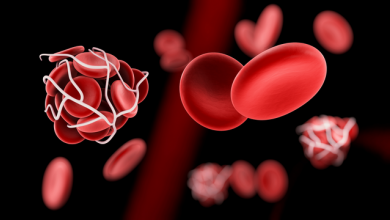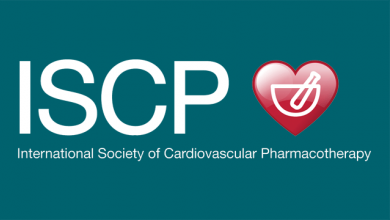Search results
Author(s):
Julia Sikorska
,
James Uprichard
Added:
3 years ago
For more than 50 years, oral vitamin K antagonists (VKAs) were the choice of anticoagulant for the long-term treatment and prevention of arterial and venous thromboembolic events (VTE). VKA treatment is safe and effective, if a high time in therapeutic range is achieved. However, achieving a stable, therapeutic international normalised ratio can prove challenging in the context of drug and food…
View more
Author(s):
Emmanuel Sorbets
,
Philippe Gabriel Steg
Added:
3 years ago
Despite improvements in the management of coronary artery disease over the last decades, ischaemic heart disease remains the leading cause of mortality worldwide and the leading cause of premature death.1,2 Patients with chronic coronary syndromes (CCS) encompass a heterogeneous population, including those with demonstrable coronary artery disease by anatomical testing or evidence of ischaemia,…
View more
Author(s):
Mahmoud Abdelnabi
,
Abdallah Almaghraby
,
Yehia Saleh
Added:
3 years ago
Vitamin K antagonist (VKA) oral anticoagulants have been ruling the field of anticoagulation for cardiovascular indications for years now. Recently, this dominance has been threatened by the introduction of direct oral anticoagulants (DOACs), with abundant data highlighting their safety and efficacy. To date, recent guidelines have limited the use of DOACs to stroke prevention in patients with…
View more
Author(s):
Han Naung Tun
,
May Thu Kyaw
,
Erik Rafflenbeul
,
et al
Added:
1 year ago
Author(s):
Antoni Martínez-Rubio
,
Mario DiazNuila-Alcazar
,
Anna Soria Cadena
,
et al
Added:
3 years ago
Atrial fibrillation (AF) is the most commonly encountered arrhythmia in clinical practice in Western countries. The prevalence of AF depends on the population studied1 and especially on age.2–9 It is affected by increasing longevity and is modulated by the prevalence of cardiovascular risk factors, especially arterial hypertension and related habits. In Spain, for example, the prevalence of AF…
View more
Direct Oral Anticoagulants Concentration Testing in Clinical Practice for High-Risk Patients with AF
Author(s):
K Pukite
,
I Urtane
,
I Pupkevica
,
et al
Added:
3 years ago
Article
Author(s):
Antoni Martínez-Rubio
,
Gheorghe-Andrei Dan
Added:
3 years ago
Are low doses of direct-acting oral anticoagulants justified and appropriate in patients with nonvalvular atrial fibrillation?
The novel direct-acting oral anticoagulants (NOACs) apixaban, dabigatran, edoxaban and rivaroxaban overcome most drawbacks of vitamin K antagonists and have proven efficacious and safe in well-designed multicentre randomised clinical trials.1–4 Furthermore, the…
View more
Author(s):
Fernando Worner
,
Cristina Marzo
,
Kristian Rivera
,
et al
Added:
3 years ago
Topic: 1. Clinical Cardiology
Introduction
Universal use of Directs Oral Anticoagulants (DOACs) in non valvular atrial fibrillation (nVAF) is not possible for economic reasons. Therefore, it is mandatory to guarantee their prescription of these drugs in patients theoretically most benefited.
Objectives
To review indications and results of one territorial, prospective and centralized…
View more
Author(s):
Raffaele De Caterina
Added:
3 years ago
Atrial fibrillation (AF) is the most common sustained cardiac arrhythmia1 and increases the risk of stroke and thromboembolism, on average, fivefold.2 Strokes in AF are generally more severe and associated with greater mortality and disability than strokes from other causes.3 Prevention of stroke and thromboembolism is therefore an important part of AF management. Guidelines have, until now,…
View more
Author(s):
Kristian Rivera
,
Cristina Marzo
,
Nuria Sans
,
et al
Added:
3 years ago
Topic: 1. Clinical Cardiology
Introduction
Universal use of Direct Oral Anticoagulants (DOACs) in non-valvular atrial fibrillation (nVAF) is not possible for economic reasons. It is necessary to prescribe them to those patients with greater potential benefit. The best way to achieve this objective is the application of a territorial protocol, designed and accepted by all professionals…
View more













